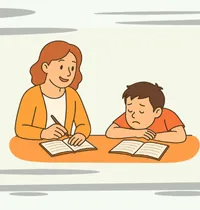
Every tutor works differently, so if you are looking for a tutor for your child, talk openly about what your child needs
Every tutor works differently, so it’s always worth asking how they approach their lessons and whether they’re able to adapt to the individual needs of your child. That said, I’ll do my best to explore this question based on my experience.
Before we go any further, it’s worth considering the size of the group your child would be learning in. A larger group might make it harder for the tutor to adapt to each child’s needs. However, if the group shares similar challenges or learning styles, being with others like them can sometimes offer extra reassurance and confidence.
If you'd rather watch a video version of the article click here
🌱 Understanding My Child
Does the tutor have experience with neurodivergent children like mine (e.g. dyslexia, ADHD, autism)?
Not all tutors will have direct experience with neurodivergent children, but that doesn’t mean they’re not the right person to support your child. Some tutors, through experience, instinctively treat each child as an individual. They ask questions, listen carefully, and adapt their approach accordingly.
Does your child need regular breaks?
Would they benefit from breaking tasks down step by step, or from fewer questions on a page to reduce overwhelm? Do they learn better through hearing or seeing? A tutor who’s open to understanding these things, and willing to ask, is far more important than one who simply knows the terminology.
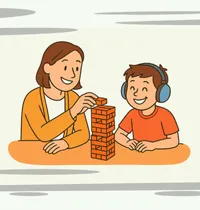
Some tutors, through experience, instinctively treat each child as an individual. They ask questions, listen carefully, and adapt their approach accordingly.
•Will they take time to understand how my child thinks, not just what they struggle with?
This is often easier in a one-to-one setting or with a small group, where the tutor can really get to know your child. They can notice body language, hesitation, or those quiet “I’m not sure” moments that might go unnoticed in a larger group. That gives them the chance to pause and rephrase things in a way that makes more sense to your child.
If your child is into a particular topic—whether it’s Minecraft, animals, or cars—a good tutor might use that as the basis for examples, instead of a generic “slice of pizza” analogy. This kind of tailoring makes learning feel more relevant and personal.
I’ve shared this example before, but when I was in a GCSE maths class, the teacher explained how to rearrange a formula. Then she asked me a question, and I just froze. She repeated the exact same explanation again (with a roll of her eyes this time), and I still didn’t get it. I felt humiliated. That night, my dad sat with me and explained it using a set of scales. Suddenly it made sense. He wasn’t a teacher, he just had the patience to explain it to me in a way that was relevant, something I could understand.
I recently spoke to a tutor who has ADHD himself. He explained how, when he was at school, he struggled with organisation.
That insight now helps him support children with similar challenges. For example, he might encourage them to do a “brain dump” at the start of the session, writing everything that’s on their mind. He also gives them the confidence to ask for a toilet break, helping to quiet the background noise and focus on the task at hand.
Every child is different. A tutor who builds rapport and takes time to understand how your child processes information will always be in a stronger position to support them effectively
Will they notice when my child is masking or pretending to understand to avoid embarrassment?
Some children are experts at nodding along to avoid looking like they don’t understand. Sadly, this is often learned through experience, where asking questions might have led to them being told off, rather than the explanation being adapted.
One strategy we often use is to ask the child to explain it back to us. If they can do that with ease, it shows they’ve really understood. If they stumble or hesitate, we know it’s time to pause and rephrase things. We can approach it from a different angle or break it down further.
The moment when they get it, when their eyes light up and they start answering confidently, the difference is clear.
A good tutor will learn the difference between polite nodding and true understanding.
And just as importantly, they’ll create an environment where it feels safe to say, “I’m still not sure.”
That’s why rapport matters. When a child feels comfortable, they can stop pretending, and that’s when the real learning begins.
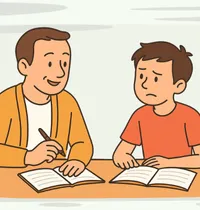
A good tutor will learn the difference between polite nodding and true understanding
🎨 Teaching Style & Flexibility
Will they use different methods if the usual ones don’t work?
Again, this is very much down to the individual tutor.
Sadly, as in every profession, there are those with the attitude, "This is how I’ve always done it," and who continue to churn out the same curriculum, the same resources, the same old, same old year on year. And then there are those who are more willing to adapt and change.
Learning is very much a unique experience for each and every individual, because we all come with different starting points, different end goals, and different methods of understanding. So ideally, you want to find the tutor who is willing to stop and get to know your child as an individual: how they learn, what inspires them, and how they retain information.
You need a tutor who recognises that we are all unique and that sometimes we need to change the wheel and evolve.
What if my child needs visuals, movement, or games instead of textbooks, will that be seen as valid?
Some tutors will provide a range of resources as their norm and give your child the choice of what feels most beneficial. Speak to the tutor, ask if this is something they cater for. Explain that your child may struggle to concentrate for longer periods and ask whether movement breaks are allowed.
One of the first girls I ever tutored was believed to be ADHD and was struggling to concentrate in class. In turn, she was falling further and further behind her peers. We worked together for a few weeks. Most of the lessons were based around games. Some were table-based board games, some involved throwing beanbags onto questions or answers, and some required collecting the correct answer from options spread about.
She rapidly started to make progress and catch up with her peers. At this stage, her mum asked me if I would be willing to do some “proper” work now. After a couple more weeks, they signed up for a popular franchise where you learn information by rote, each time adding on to the worksheets from the previous session.
A lot of tutors provide support in a way that worked for them when they were at school. Likewise, a lot of parents look for the style of support that worked for them.
So talk. Try to create a clear flow of communication so you can ask questions, request variety, and explain what has and hasn’t worked for your child in the past.
There are tutors out there who are willing to listen and embrace your child’s individual needs.
Can they explain things in more than one way, depending on what clicks for my child?
This is something I’m quite opinionated on. I believe that our role as tutors is to explain things in a way that works for the children we are working with in that moment.
It doesn’t matter if 99.9% of others have understood it when we explained it like that, if the child sat before us right now doesn’t get it, it is our responsibility to find another explanation that does work. That’s what we’re being paid for.
As a child in a GCSE maths class, I remember the teacher explaining something I didn’t understand.
She picked me to answer.
I sat and looked at her blankly, then gave an answer with only the slightest glimmer of hope that it might be right.
No chance.
She explained it again using the exact same words.
She asked me again.
I was still none the wiser.
She could have been speaking another language.
With a roll of her eyes, she explained it for the third time...in exactly the same way.
I still had no idea what she meant.
Bright red in the face and on the verge of tears, I felt like a complete fool in front of the whole class.
That evening, my dad explained it to me using a set of scales as a visual. For me, that made all the difference. She could have repeated herself a million times, and it wouldn’t have helped.
I think that’s why I’m still so passionate about this. If it takes us 10, 12, 20 ways to find the explanation that works—so be it.
That, as educators, is our responsibility.

I believe that our role as tutors is to explain things in a way that works for the children we are working with in that moment.
❤️ Emotional Safety
Will the tutor make my child feel accepted and not “wrong” for learning differently?
It is important that the tutor and the child can build a rapport so the child feels confident to ask questions and say when they don’t understand something. From the outset, it’s the tutor’s responsibility to put your child at ease.
They might say, “Nobody knows everything. There may be times when you ask me something I don’t know the answer to, when that happens, we’ll either work it out together, or I’ll find out and we’ll revisit it next time.”
From my own perspective, I love it when a child learns in a way that doesn’t just involve ploughing through worksheets.
It makes the sessions more interactive, engaging, and enjoyable. Selfishly, I also feel that if I’m enjoying it, rather than bored, my enthusiasm is more likely to be reciprocated by the child I’m working with.
Will they be kind when my child gets overwhelmed or shuts down?
I would hope the answer to this would be yes.
If not, then really, tutoring isn’t the right job for them.
It’s worth talking to the tutor in advance about what you’d like to happen if this scenario occurs.
Do you want them to have a five-minute break, finish the lesson and return to it next time, or just move on to a different resource or approach to shift the energy?
Even if each situation is handled in the moment, at least you’ll know you’re all on the same page and offering the best support for your child.
Most tutors who support children with SEND recognise that people have good days and bad days. Sometimes life or school events have just been too much, and they need time to unwind and not feel pressured by another lesson.
Again, talk to the tutor from the start and discuss how you’d like to handle things, including their policies around these situations.
What happens if my child says, “I don’t get it,” over and over, will the tutor keep trying?
As I’ve already said, I believe it’s the responsibility of any good tutor to explain things as many times and in as many ways as necessary until the child gets it.
If your child doesn’t understand, is it because the tutor isn’t explaining it in the right way?
Over the years I’ve worked with some incredible tutors. But what I’ve observed is that sometimes the most intelligent, highly qualified ones are the worst at explaining things. They see it as common sense. In contrast, those who need to break things into smaller, manageable chunks for their own understanding are often the better tutors.
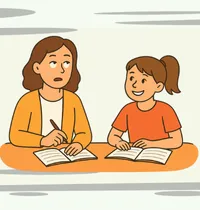
🔄 Feedback & Communication
Will the tutor tell me what works or doesn’t work for my child?
Most tutors will take time to speak to you at the end of the session. They’ll explain what they covered, how, why, and what the outcome was. This feedback helps identify what worked well and how they’ll tweak things going forward if needed.
Can we tweak the approach together if something isn’t helping?
You know your child better than anyone, so hopefully the tutor will be ready to listen and try your suggestions. At the end of the first session, I always tell the child (and then reiterate to the parents) that if it was too easy, too hard, too boring, or just not how they learn, let me know—I’m more than happy to adapt. The lesson is their time, and it’s up to me to offer the best support I can.
How involved can I be in shaping the support plan?
This is easier when the tutor is working one-to-one or with a small group. As mentioned earlier, a good tutor will embrace your feedback. The better they know your child and what works, the more productive the lessons will be. Your involvement will usually be appreciated, unless the tutor is stuck in the mindset of “I’ve always done it this way,” or “I’m the teacher here, maybe you ought to listen to me.”
Sadly, that mindset still exists in some. So speak with the tutor beforehand, build rapport, and keep the lines of communication open so you can offer your child the best possible support.
🧠 Past Experiences & Fears
We’ve tried tutors before and it didn’t work, how do I know this one won’t just do the same?
To be honest, you can’t. The best thing you can do is talk openly with the tutor beforehand and gauge their attitude toward supporting your child, their willingness to be flexible, and their approach to different learning styles. For some children, qualifications and experience aren’t what matter most, it’s the tutor’s willingness to listen and work in a way that meets your child’s needs.
School hasn’t worked for my child, will this just be more of the same, or something truly different?
Again, talk to the tutor about their style, how many children are in the session, and how the sessions are structured. Explain why school didn’t work for your child and ask how their approach differs. Sometimes, your gut will tell you whether this tutor is the right fit.

Talk openly with the tutor beforehand and gauge their attitude toward supporting your child, their willingness to be flexible, and their approach to different learning styles.
How can Clara James Tutoring Support You?
If this sounds like the kind of support your child might benefit from, I’d love to chat and see if we’re the right fit. Feel free to drop me a message, no obligation, just a friendly conversation.
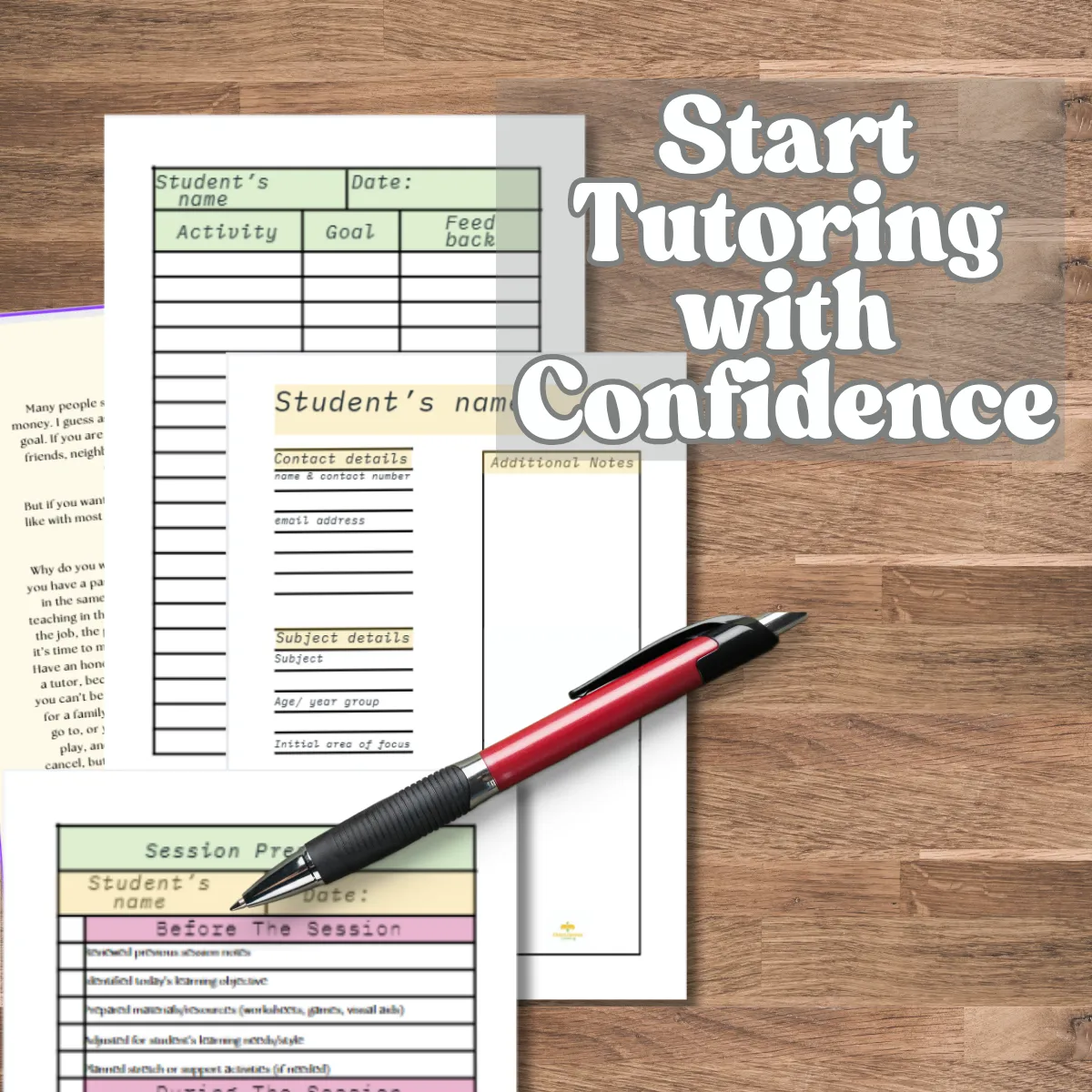
Copywrite: Clara James Tutoring 2025

